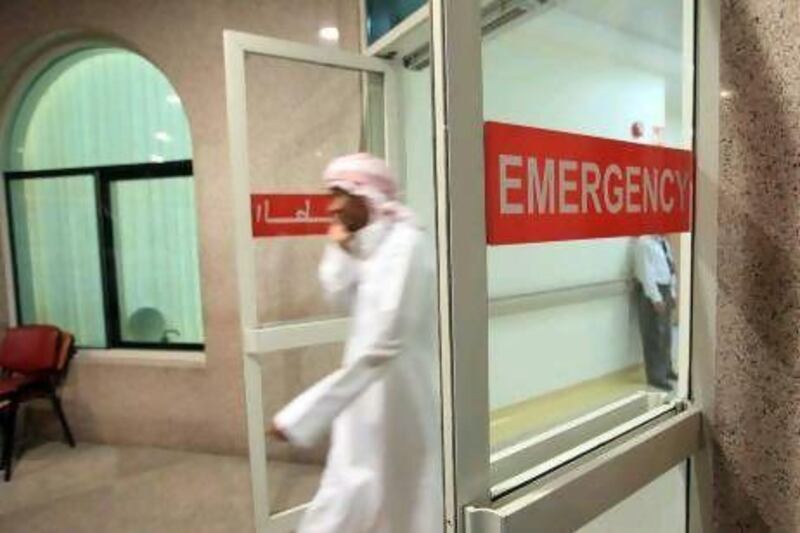ABU DHABI // Richard Silva has spent the past few decades getting used to working at all hours of the night.
After almost five years working the late shift, from 7pm to 7am, in the emergency room at Al Noor Hospital, the Filipino nurse relies on a proven method of keeping himself alert for any patients who might come in: lots of caffeine.
At 3am, Mr Silva and the rest of the small staff of nurses, led by a general practitioner, take advantage of the quiet to catch up on paperwork.
Once his shift finishes, he will speak with his children back in the Philippines before taking a rest.
"We just finish the chaos around midnight and we then have to collate everything [patients' paperwork] because we have to pass it over in the morning to the next team of staff," says Mr Silva, 43.
"Once I get home, I stay up and wait until they [the children] are awake, at about 10am, and we speak."
The small ER department, which has five beds, does not usually have many patients come through its doors, but some that do have provided interesting cases, says Dr Nassim Ahmed, the GP in charge.
Having moved to the UAE three years ago from his home in the Palestinian Territories, Dr Ahmed, 30, works the evening shift every several days.
Any cases requiring further investigation, or that are the result of trauma, require the attention of the on-call consultant.
Once patients who have experienced severe trauma are stabilised, they are sent to government hospitals to recuperate.
This morning there is only one patient, a young Emirati man who has Crohn's disease, a chronic condition that causes an inflamed digestive system.
When it flares up every month, the 25-year-old has to go to an ER department. Today is the first time the patient has come to Al Noor, as the waiting time at Mafraq Hospital was too long, says his older brother.
Before Dr Ahmed's night shift ends, the now-quiet department will fill up once again.
"By around 5 or 6am we will have more patients," he says. "Some will have been in pain all night, but without transport. They will take tablets and wait until the morning before they are able to come here."
Many of the patients who come in at this time of the morning are labourers, either with fevers or a workplace injury.
For Rachel Rajan, a practical nurse from Kerala, once her night shift is over, the one at home begins. Mother to a one-year-old baby girl, Ms Rajan, 34, has to get by on very little sleep.
While the department is quiet after 3am, she expects there to be a rise in the number of patients during Ramadan.
"People sleep during the day and are awake at night," Ms Rajan says.
Keeping each other company as they work through piles of paper that have built up in their shift, the team mostly works in silence, broken only by a joke or playful comment.
Outside, as the sky becomes brighter and the birds start to chirp, doctors and staff from other departments - including the intensive-care unit ward and the GP clinic - wander to and fro, many with a cup of coffee in their hands.
Gathering next to one of the two ambulances parked outside the ER entrance, a group of staff take a quick break from their duties.
As the clock ticks, the remainder of their shift, they hope, will go by smoothly.
"We have seen no injured people," says one employee. "Inshallah, it will stay that way."





